King Trumpet mushroom (Pleurotus eryngii), also known as King Oyster mushroom, is a large edible fungus characterized by its thick, meaty stem and small, convex cap. Renowned for its rich umami flavor and firm texture, it is a versatile ingredient in various culinary dishes. This mushroom is also valued for its nutritional benefits, including being a good source of protein, fiber, and essential vitamins.
King Trumpet mushroom, often dubbed the “steak of mushrooms,” is a culinary gem that brings a savory depth to any dish it graces. With its firm, meaty texture and rich umami flavor, it has become a favorite among chefs and home cooks alike. This versatile fungus not only elevates gourmet recipes but also boasts impressive health benefits, including high protein and vitamin content. Whether you’re sautéing, grilling, or roasting, the King Trumpet mushroom promises to transform your meals into a gourmet experience. Dive into the world of this remarkable mushroom and discover why it stands out in the realm of edible fungi.
King Trumpet Mushroom, scientifically known as Pleurotus eryngii, is notable for its impressive size and robust flavor profile. It features a thick, edible stem that remains tender and succulent even after cooking, making it ideal for a variety of dishes. In addition to its culinary appeal, this mushroom is packed with nutrients, including B vitamins, potassium, and antioxidants, contributing to its reputation as a healthful ingredient. Cultivated primarily in East Asia and Europe, it has gained popularity worldwide for its versatility in both vegetarian and meat-based recipes.
Nutritional Profile of King Trumpet Mushrooms
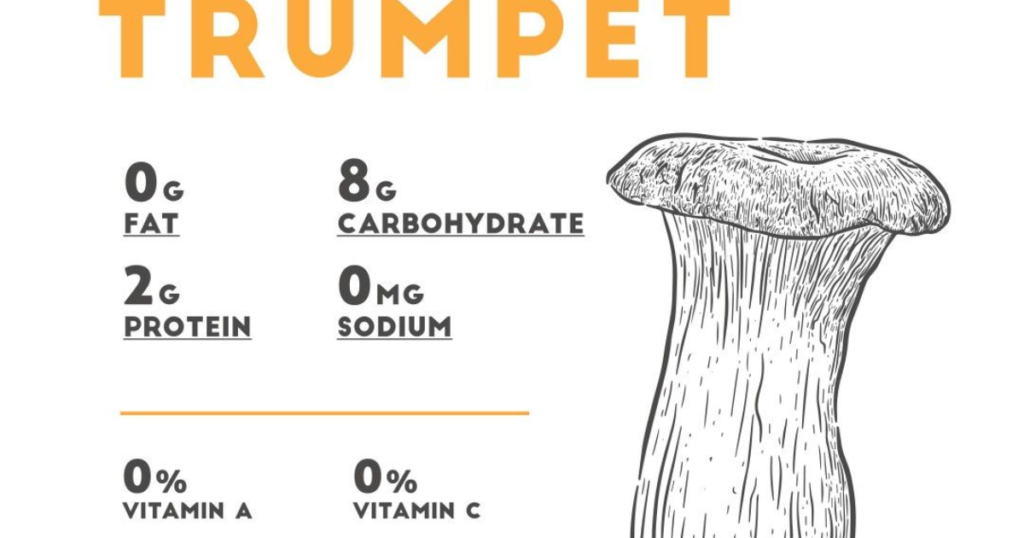
King trumpet mushrooms are not only prized for their unique texture and flavor but also for their impressive nutritional profile. These mushrooms are low in calories yet packed with essential nutrients, making them an excellent addition to a healthy diet. Let’s break down the nutritional composition of king trumpet mushrooms and explore why they are considered a nutritional powerhouse.
Macronutrients
Protein
King trumpet mushrooms are an excellent source of plant-based protein. Per 100 grams of fresh mushrooms, they contain approximately 3.6 grams of protein. This makes them a valuable protein source for vegetarians and vegans. The protein in these mushrooms contains all nine essential amino acids, making it a complete protein source.
Carbohydrates
These mushrooms are relatively low in carbohydrates, with about 6 grams per 100 grams of fresh weight. The carbohydrates are primarily in the form of complex carbohydrates and dietary fiber, which contribute to their health benefits.
Fiber
King trumpet mushrooms are rich in dietary fiber, containing both soluble and insoluble forms. Fiber content is approximately 2.3 grams per 100 grams, which is significant for a vegetable source.
Fat
These mushrooms are very low in fat, with less than 0.5 grams per 100 grams. This low-fat content makes them an excellent choice for those watching their calorie and fat intake.
Micronutrients
Vitamins
Vitamin D
King trumpet mushrooms are one of the few non-animal sources of vitamin D. When exposed to UV light during growth or after harvesting, they can produce significant amounts of vitamin D2.
B-complex vitamins
They are rich in several B vitamins, including riboflavin (B2), niacin (B3), pantothenic acid (B5), and folate (B9).
Vitamin C
While not as high as some fruits, king trumpet mushrooms do contain a modest amount of vitamin C.
Minerals
Potassium
These mushrooms are an excellent source of potassium, which is essential for heart health and proper muscle function.
Phosphorus
Important for bone health and cellular function.
Copper
Crucial for forming red blood cells and maintaining nerve cells and the immune system.
Selenium
An important antioxidant mineral that supports thyroid function and helps protect cells from damage.
Zinc
Essential for immune function, wound healing, and DNA synthesis.
Antioxidants
King trumpet mushrooms contain various antioxidants, including ergothioneine and polyphenols, which contribute to their health-promoting properties.
Unique Compounds
Beta-glucans
These are complex sugars found in the cell walls of king trumpet mushrooms. They are known for their immune-modulating and potential anti-cancer properties.
Lovastatin
Some studies have found that king trumpet mushrooms contain small amounts of lovastatin, a compound that can help lower cholesterol levels.
Ergosterol
This compound is a precursor to vitamin D2 and may have its own health benefits, including potential anti-inflammatory and antioxidant effects.
Caloric Content
King trumpet mushrooms are low in calories, with approximately 35-40 calories per 100 grams of fresh mushrooms. This low caloric density, combined with their high nutrient content, makes them an excellent food for weight management and overall health.
Glycemic Index
The glycemic index of king trumpet mushrooms is low, meaning they don’t cause rapid spikes in blood sugar levels. This makes them a good choice for people managing diabetes or those following a low-glycemic diet.
Comparison to Other Mushrooms
When compared to other commonly consumed mushrooms, king trumpet mushrooms stand out in several ways:
- They generally have a higher protein content than button mushrooms or shiitake mushrooms.
- Their vitamin D content (when exposed to UV light) can be significantly higher than most other mushroom varieties.
- They have a lower water content, which contributes to their meaty texture and concentrated nutrient profile.
Bioavailability of Nutrients
It’s worth noting that the bioavailability of nutrients in king trumpet mushrooms can be affected by cooking methods. While some nutrients may become more available through cooking, others, particularly water-soluble vitamins, may be reduced. Gentle cooking methods like sautéing or grilling are often recommended to preserve nutritional value.
Potential Allergies and Interactions
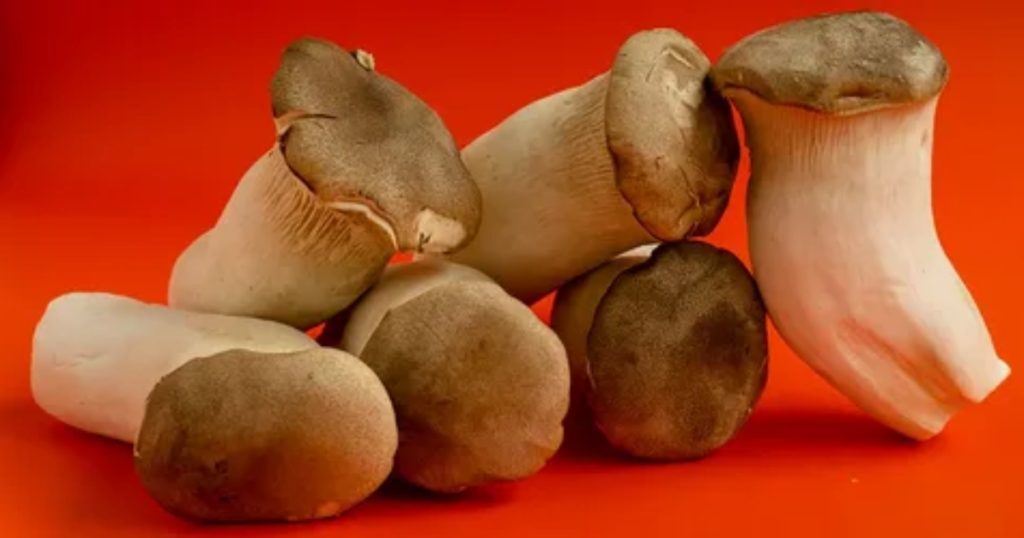
While allergies to king trumpet mushrooms are rare, individuals with general mushroom allergies should exercise caution. Additionally, due to their nutrient density and potential bioactive compounds, individuals on certain medications (particularly those affecting blood clotting or blood sugar) should consult with a healthcare provider before significantly increasing their intake of these mushrooms.
In conclusion, the nutritional profile of king trumpet mushrooms makes them a valuable addition to a balanced diet. Their combination of essential nutrients, unique compounds, and low calorie content contributes to their status as a functional food with potential health-promoting properties. As we explore the specific health benefits in the following sections, it’s important to remember that these nutrients work synergistically within the body, contributing to overall health and well-being.
Antioxidant Properties and Their Health Implications
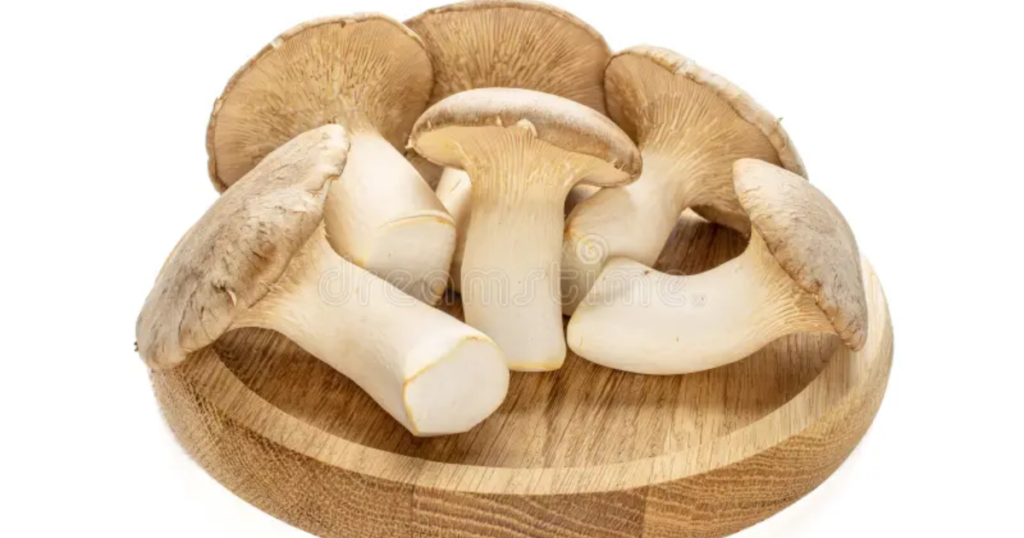
King trumpet mushrooms are renowned for their impressive antioxidant content, which plays a crucial role in their health-promoting properties. Antioxidants are compounds that help protect our cells from damage caused by free radicals – unstable molecules that can lead to oxidative stress. This section will delve into the antioxidant profile of king trumpet mushrooms and explore the potential health implications of these powerful compounds.
Antioxidant Profile
Ergothioneine
This is one of the most notable antioxidants found in king trumpet mushrooms. Ergothioneine is a unique amino acid that acts as a powerful antioxidant and has been dubbed a “longevity vitamin” by some researchers. King trumpet mushrooms are one of the richest dietary sources of ergothioneine.
Polyphenols
These are a diverse group of plant compounds known for their antioxidant properties. King trumpet mushrooms contain various polyphenols, including flavonoids and phenolic acids.
Selenium
While primarily known as a mineral, selenium also functions as an antioxidant in the body. King trumpet mushrooms are a good source of this important nutrient.
Vitamin C
Although not present in large quantities, the vitamin C in king trumpet mushrooms contributes to their overall antioxidant capacity.
Beta-glucans
While primarily known for their immune-modulating effects, beta-glucans also exhibit antioxidant properties.
Mechanisms of Action
The antioxidants in king trumpet mushrooms work through several mechanisms to protect the body:
Free Radical Scavenging
Antioxidants like ergothioneine and polyphenols can directly neutralize free radicals, preventing them from causing cellular damage.
Metal Chelation
Some antioxidants can bind to metal ions that might otherwise participate in reactions that generate free radicals.
Enzyme Inhibition
Certain antioxidants can inhibit enzymes involved in the production of free radicals.
Antioxidant Enzyme Support
Compounds like selenium support the body’s own antioxidant enzymes, such as glutathione peroxidase.
Health Implications
The antioxidant properties of king trumpet mushrooms have several potential health implications:
Cellular Protection
By neutralizing free radicals, these antioxidants help protect cellular components, including DNA, proteins, and lipids, from oxidative damage. This protection is crucial for maintaining cellular health and function.
Anti-Aging Effects
Oxidative stress is a key factor in the aging process. The antioxidants in king trumpet mushrooms may help slow down age-related cellular damage, potentially contributing to longevity and healthier aging.
Chronic Disease Prevention
Oxidative stress is implicated in the development of various chronic diseases, including heart disease, diabetes, and certain cancers. The antioxidant properties of king trumpet mushrooms may help in the prevention of these conditions.
Neuroprotection
Ergothioneine, in particular, has shown promise in protecting brain cells from oxidative damage. This could have implications for cognitive health and the prevention of neurodegenerative diseases.
Cardiovascular Health
Antioxidants can help protect the cardiovascular system by preventing oxidation of LDL cholesterol, a key step in the development of atherosclerosis.
Skin Health
The antioxidants in king trumpet mushrooms may help protect the skin from UV-induced damage and oxidative stress, potentially contributing to healthier, more youthful-looking skin.
Immune System Support:
While primarily discussed in the context of beta-glucans, the antioxidant compounds in king trumpet mushrooms also contribute to immune system health by protecting immune cells from oxidative damage.
Research and Studies
Numerous studies have investigated the antioxidant properties of king trumpet mushrooms:
- A 2017 study published in the Journal of Food Science found that extracts from king trumpet mushrooms exhibited strong antioxidant activity in vitro, with the ability to scavenge various types of free radicals.
- Research published in the journal Food Chemistry in 2015 compared the antioxidant capacity of different mushroom species and found that king trumpet mushrooms had one of the highest total phenolic contents and antioxidant activities.
- A study in the Journal of Agricultural and Food Chemistry investigated the ergothioneine content of various mushroom species and found king trumpet mushrooms to be a rich source of this unique antioxidant.
Factors Affecting Antioxidant Content
Several factors can influence the antioxidant content of king trumpet mushrooms:
Growing Conditions
Factors like light exposure, temperature, and substrate composition can affect the synthesis of antioxidant compounds.
Maturity
The antioxidant content can vary depending on the mushroom’s stage of growth at harvest.
Processing and Cooking
Different cooking methods can affect antioxidant levels. For example, some studies suggest that light cooking may enhance the availability of certain antioxidants, while excessive heat can degrade others.
Storage
Proper storage is crucial to maintain antioxidant levels, as exposure to light and air can lead to oxidation and loss of these beneficial compounds.
Incorporating King Trumpet Mushrooms for Antioxidant Benefits
To maximize the antioxidant benefits of king trumpet mushrooms:
- Consume them regularly as part of a varied diet rich in other antioxidant-containing foods.
- Use gentle cooking methods like sautéing or grilling to preserve antioxidant content.
- Combine them with other antioxidant-rich foods for potential synergistic effects.
- Store them properly in a cool, dark place to maintain their antioxidant levels.
While the antioxidant properties of king trumpet mushrooms are promising, it’s important to note that more research, particularly human clinical trials, is needed to fully understand their impact on human health. Nonetheless, the strong antioxidant profile of these mushrooms contributes significantly to their status as a functional food with potential health-promoting properties.
Read more:
Environmental Impact Of Button Mushroom Farming
Immune System Support and Cancer-Fighting Potential
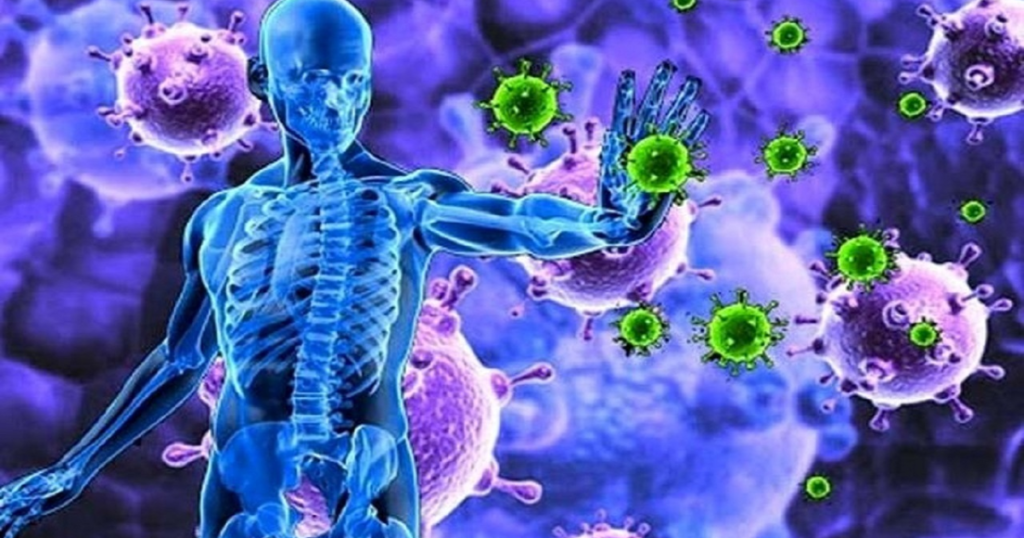
King trumpet mushrooms have garnered significant attention for their potential to support the immune system and their possible role in cancer prevention and treatment. This section will explore the compounds and mechanisms by which these mushrooms may influence immune function and cancer processes, as well as the current state of research in these areas.
Immune System Support
The immune-modulating properties of king trumpet mushrooms are primarily attributed to their content of beta-glucans, a type of complex carbohydrate found in the cell walls of these fungi. Beta-glucans are known for their ability to interact with and stimulate various components of the immune system.
Mechanisms of Immune Support
Macrophage Activation
Beta-glucans can bind to specific receptors on macrophages, key cells of the innate immune system. This binding activates the macrophages, enhancing their ability to engulf and destroy pathogens.
Natural Killer (NK) Cell Stimulation
Some studies suggest that beta-glucans can increase the activity of NK cells, which are crucial for identifying and eliminating virus-infected cells and tumor cells.
Cytokine Production
Beta-glucans may stimulate the production of various cytokines, signaling molecules that help coordinate the immune response.
T-Cell and B-Cell Activation
There’s evidence that beta-glucans can enhance the function of these adaptive immune cells, improving overall immune response.
Antioxidant Support
The antioxidants in king trumpet mushrooms, as discussed in the previous section, also play a role in supporting immune function by protecting immune cells from oxidative damage.
Research on Immune Support:
While much of the research on the immune-modulating effects of mushrooms has focused on other species like shiitake or reishi, studies specific to king trumpet mushrooms are emerging:
- A 2016 study published in the International Journal of Medicinal Mushrooms found that polysaccharides extracted from king trumpet mushrooms enhanced the production of nitric oxide and tumor necrosis factor-alpha in macrophages, indicating immune-stimulating effects.
- Research published in the Journal of Medicinal Food in 2018 demonstrated that extracts from king trumpet mushrooms increased the production of immune-modulating cytokines in human peripheral blood mononuclear cells.
Cancer-Fighting Potential:
The potential anti-cancer properties of king trumpet mushrooms are an area of growing research interest. Several mechanisms have been proposed for their potential cancer-fighting effects:
Immune System Enhancement
By boosting immune function, king trumpet mushrooms may help the body’s natural defenses against cancer cells.
Antioxidant Activity
The antioxidants in these mushrooms may help prevent DNA damage that can lead to cancer development.
Anti-Angiogenic Effects
Some studies suggest that compounds in king trumpet mushrooms may inhibit angiogenesis, the formation of new blood vessels that tumors need to grow.
Apoptosis Induction
Certain compounds found in these mushrooms have shown the ability to induce apoptosis (programmed cell death) in cancer cells in laboratory studies.
Anti-Inflammatory Effects
Chronic inflammation is linked to cancer development, and the anti-inflammatory properties of king trumpet mushrooms may play a role in cancer prevention.
FAQs
What are the primary health benefits of King Trumpet mushrooms?
King Trumpet mushrooms are rich in antioxidants, which help reduce oxidative stress and inflammation. They are also an excellent source of essential nutrients like B vitamins, potassium, and dietary fiber.
Can King Trumpet mushrooms boost the immune system?
Yes, they contain compounds such as polysaccharides that are known to enhance immune function and support overall health.
Are King Trumpet mushrooms good for heart health?
Absolutely. These mushrooms can help lower cholesterol levels and improve heart health due to their high fiber content and antioxidant properties.
Do King Trumpet mushrooms aid in weight management?
Yes, they are low in calories but high in fiber, which can promote satiety and help with weight management.
Can King Trumpet mushrooms have anti-cancer properties?
Emerging research suggests that they may possess anti-cancer properties due to their bioactive compounds that can inhibit tumor growth and boost immune response.
Conclusion
King Trumpet mushrooms are not only a culinary delight but also a powerhouse of health benefits and medicinal properties. Their high content of antioxidants helps combat oxidative stress, potentially reducing the risk of chronic diseases. The immune-boosting polysaccharides present in these mushrooms support the body’s defense mechanisms, making them a valuable addition to any diet. Furthermore, their role in heart health is significant, given their ability to lower cholesterol and improve cardiovascular functions.
For those looking to manage their weight, the high fiber and low-calorie nature of King Trumpet mushrooms make them an excellent dietary choice. The potential anti-cancer properties add another layer to their health benefits, showcasing their versatility not just in the kitchen, but also as a functional food. Incorporating King Trumpet mushrooms into your diet can be a delicious way to enhance your overall well-being and protect against various health conditions.

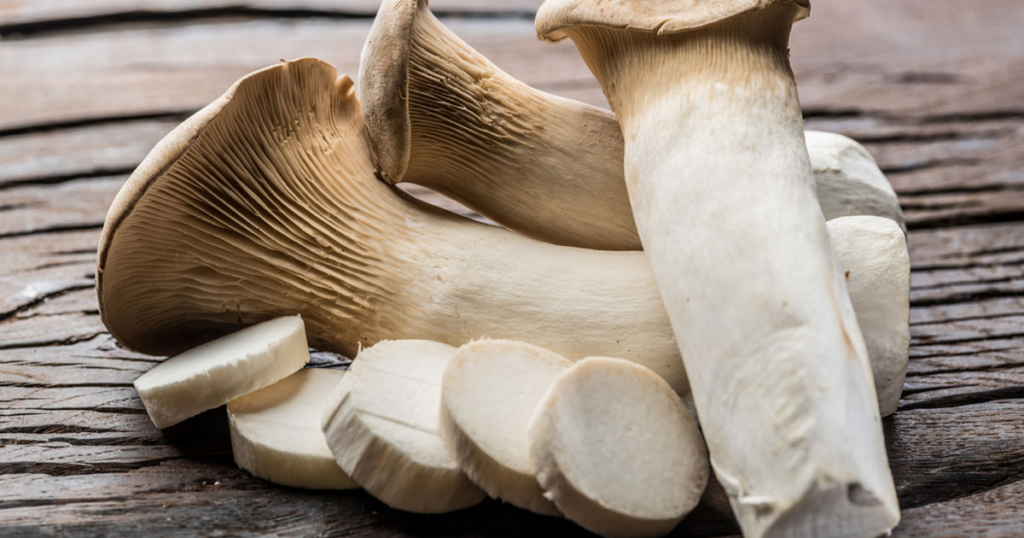
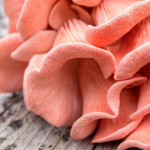
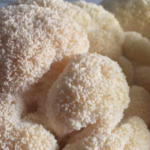
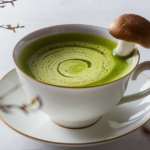
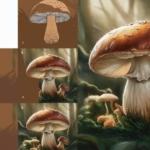


1 thought on “Health Benefits and Medicinal Properties of King Trumpet Mushrooms”